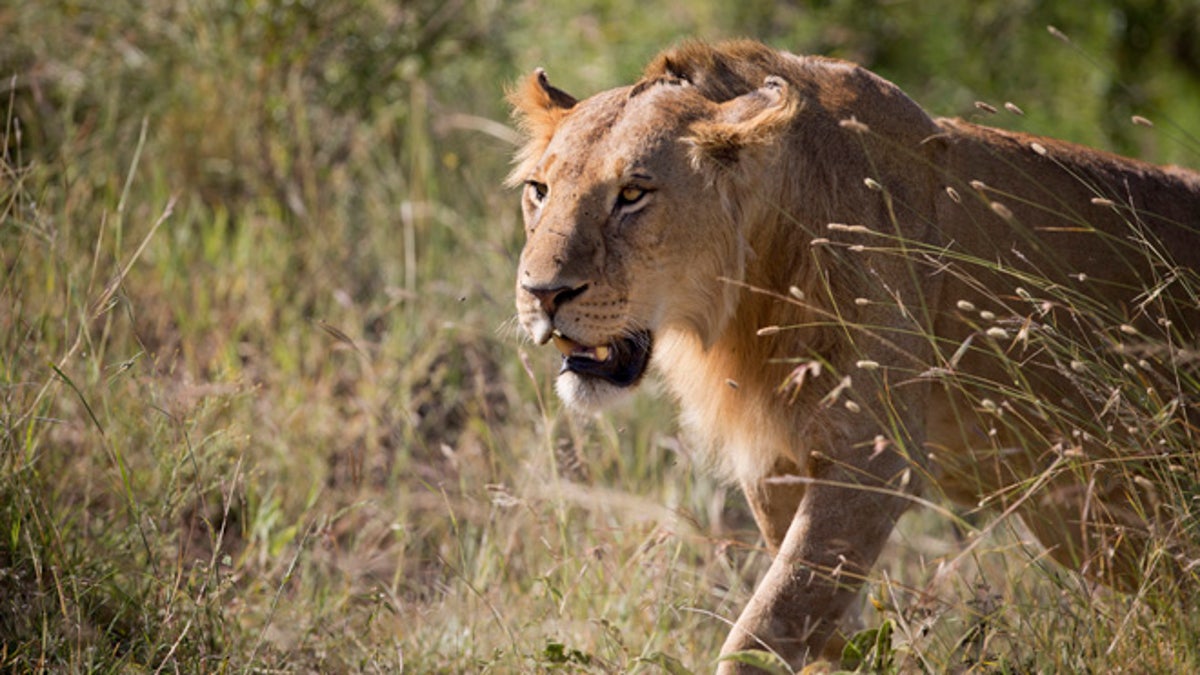
July 6, 2015: A lion prowls for potential prey in the afternoon near to a river in the Maasai Mara, south-western Kenya. (AP Photo/Ben Curtis)
Kenyan authorities have arrested three Maasai herdsmen for allegedly poisoning a famous pride of lions, killing two, in the Masai Mara Game Reserve after the lions killed two of their cows, officials said Tuesday.
A fourth suspect is still at large, said Moses Kuyioni, the reserve's chief warden.
The lions attacked the herdsmen's cattle in the park in western Kenya on Sunday night, Kuyioni said. The men are suspected of setting out poisoned meat for the lions. Two lions from a pride known as the Marsh Pride died, said the Kenya Wildlife Service.
The Marsh Pride was featured in the popular BBC television series "Big Cat Diary" which aired from 1996 to 2008. Zoologist Jonathan Scott, who co-presented the series and has been following the pride since 1977 mourned the deaths in a post on his website titled "The Marsh Lions: End of an Era."
The poisoning not only affected the lions but will move through the food chain, said wildlife expert, Paula Kahumbu. Six vultures were found dead near the poisoned meat. Other scavengers such as jackals, hyenas, and smaller predators will be feeding on the dead animals, too, Kahumbu said.
Land division and urbanization have reduced the traditional grazing lands of the Maasai herdsmen who have responded by allowing their cattle to browse on the plains of the game reserves.
Kenya's lion population has declined to about 2,000, largely because of human wildlife-conflict, said Kahumbu.
"Lions generally cannot coexist with humans, which is why protected areas are so vital. Sadly in Mara the pastoralists are entering the reserve nightly to graze livestock, so of course lions get killed," Kahumbu said.
In order to conserve Kenya's remaining lions, Kahumbu said, there should be zero tolerance for cattle grazing in parks. Authorities need to make it easier for lions to survive inside and outside of protected areas as the big cats follow the antelopes, zebra and gnu outside the park, she said.
Also, people who live in areas near parks need incentives to coexist with the lions, she said: "Currently there are only costs for living with lions. No rewards."




















